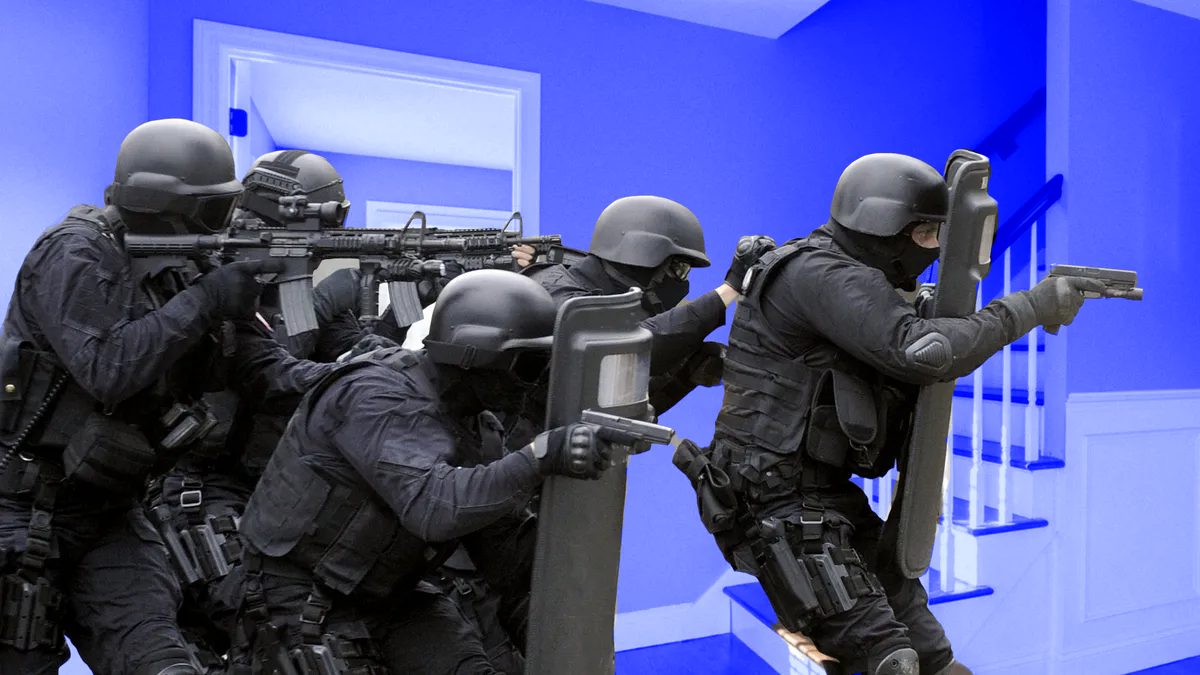The recent shooting incident involving the FBI and a Utah man accused of making threatening remarks online about President Joe Biden and Manhattan District Attorney Alvin Bragg has sparked controversy and raised questions about the balance between freedom of speech and national security. The FBI claimed that the man, identified as Craig Deleeuw Robertson of Provo, Utah, posed a potential threat, leading to a fatal encounter during an early morning raid on his home.
Background and Details of the Incident
On the morning of the incident, around 6:15 a.m., FBI special agents attempted to serve arrest and search warrants at Robertson’s residence. The situation quickly escalated, resulting in shots being fired and Robertson’s death. The FBI’s statement confirmed that the subject was deceased but did not provide additional details about the encounter.
According to the FBI, Robertson was facing three felony counts, including interstate threats, threats against the president, and influencing, impeding, and retaliating against federal law enforcement officers by threat. The agency had been monitoring Robertson’s online activities and allegedly discovered threatening remarks directed towards President Biden and Alvin Bragg.
In a Facebook post from September 2022, Robertson allegedly wrote, “The time is right for a presidential assassination or two. First Joe then Kamala!!!” On August 6, he allegedly made another post stating that he was “cleaning the dust off his M24 sniper.” These posts, along with others, caught the attention of law enforcement agencies, leading to the FBI’s surveillance operation on Robertson.
During their surveillance, the FBI observed Robertson wearing a dark suit with an AR-15 style rifle lapel pin, along with a white shirt, red tie, and a multi-colored hat bearing the word “TRUMP” on the front. This observation, combined with his alleged threatening remarks, heightened concerns about the potential danger he posed.
Neighbors’ Perspectives and Controversy
Neighbors of Robertson expressed mixed opinions about the incident. While some described him as an overweight man who enjoyed attention and storytelling, others believed that his online threats should not be taken lightly. Cooper Robinson, a neighbor, stated, “I don’t really care who’s president, I don’t think it’s cool to make threats like that, whether they’re legitimate threats or not.”
However, Robinson also suggested that Robertson’s online posts might have been an attempt to gain attention and that he hoped the FBI had additional evidence to justify the raid on Robertson’s house. This sentiment raises concerns about the level of evidence required to take such drastic actions and the balance between protecting national security and safeguarding individual rights.
Law Enforcement Response and Ongoing Investigation
The Secret Service, responsible for protecting the president and other public figures, acknowledged the incident and referred all questions to the FBI. In a statement, the Secret Service stated, “The Secret Service is aware of the FBI investigation involving an individual in Utah who has exhibited threats towards a protectee.” The agency emphasized that the FBI was leading the investigation and that they were in close coordination with their law enforcement partners.
Following the incident, the FBI’s Inspection Division launched an investigation into the shooting. This internal investigation will examine the circumstances surrounding the raid and the use of force by the agents involved. The outcome of this investigation will shed more light on the appropriateness and proportionality of the actions taken by law enforcement.
Broader Implications and Freedom of Speech Concerns
This incident raises broader concerns about the delicate balance between freedom of speech and national security. While the First Amendment protects individuals’ right to express their opinions, including criticism of public figures, there are limits when those expressions cross into threats or incitement of violence. Determining where these boundaries lie can be challenging, and cases like Robertson’s highlight the complexities involved in assessing potential threats in the digital age.
Law enforcement agencies face the difficult task of monitoring and assessing the credibility of online threats, especially in a time when social media platforms provide individuals with a platform to express their opinions freely. Striking the right balance between protecting public safety and respecting individuals’ rights is a constant challenge for these agencies.


Leave a Comment